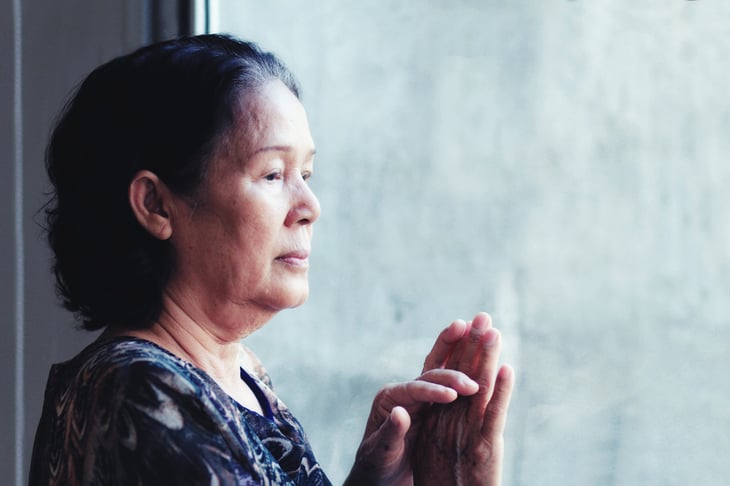
Social Security is a complicated program that’s crucial for the retirement of millions of Americans.
That’s even more true if you rely on someone else. Understanding the rules that apply to your situation could make a difference in tens of thousands of dollars over your lifetime.
Following are several important rules for married couples to know when planning for their Social Security.
1. Spousal benefits can be worth up to half your partner’s

Even if you’ve never worked yourself, you may be able to get Social Security benefits through your spouse’s work history. You can claim these benefits as early as age 62 so long as your spouse is already receiving payments.
Starting that early has the drawback of permanently reducing your benefit — you can find out how much with this early retirement Social Security calculator — but it does not directly affect your spouse and has no effect on how much they receive.
2. You can’t double dip

While you’re always eligible for the higher of your own benefit or what you can get through your partner, you don’t get both.
There is, however, a special circumstance for people with spouses born in 1953 or earlier, as the Social Security Administration (SSA) explains:
“If your spouse was born before January 2, 1954, and has already reached full retirement age, they can choose to receive only the spouse’s benefit and delay receiving their own retirement benefit until a later date. If your spouse is full retirement age and applying for spouse’s benefits only, they can apply online by using the retirement application.”
This isn’t double dipping either, but it is advantageous in the sense that delaying your own benefits increases the amount you’ll receive, up until age 70.
3. Divorce isn’t a disqualifier for spousal benefits

If you meet the requirements, you can still get spousal benefits through an ex. You must have been married 10 years or more to someone who is 62 or older, and you must not have remarried.
This does not affect their benefit amount, and it doesn’t matter if they have remarried.
4. Survivors benefits can be worth up to 100% of your partner’s

Survivors benefits, unlike spousal benefits, do not top out at 50% of your partner’s. You may be eligible for up to their full benefit amount starting at age 60, or age 50 if you have a disability.
In some cases, survivors benefits may be available even younger. “Your widow or widower can get benefits at any age if they take care of your child who is younger than age 16 or who has a disability, and is receiving Social Security benefits,” the SSA says.
5. Survivors benefits aren’t necessarily automatic

The SSA does not always automatically bump up a widow or widower’s benefit to their spouse’s if it would be higher. You need to apply, unless you were already receiving spousal benefits. “In some cases, benefits may not be retroactive,” the agency warns, so don’t delay.
If you are receiving spousal benefits, the SSA should make the change as soon as they receive a report of death — which brings us to the next point.
6. Social Security won’t necessarily tell you if your ex-spouse died

Social Security does not always know when someone dies. Although “in most cases, the funeral home will report the person’s death to us,” the SSA says, you should still notify the agency immediately.
But what if you’re the one who doesn’t know about your spouse’s death — such as if you’re estranged from them? As Social Security expert Russell Settle points out, you may have no way of knowing you’re entitled to survivor’s benefits unless you’re already receiving spousal benefits:
“The SSA does not notify you of your ex-spouse’s death, even though you are now eligible for survivor’s benefits. The burden would be on you to find out about your ex’s death. The easiest way to find out about his death is to contact the SSA every few months and ask: ‘Is my ex-husband still alive?'”
7. Same-sex couples may count as married for some benefits

Eligibility for spousal and survivors benefits is determined in part based on marital status, past and present. Because same-sex couples lacked a constitutional right to marry until 2015, the SSA will in some cases waive marriage requirements for long-term same-sex relationships.
This could lead to wider eligibility and higher benefits or possibly retroactive benefits for people who were denied them in the past. Says the SSA:
“You may qualify for survivors benefits if either of the following are true:
- You would have been married at the time of your partner’s death if unconstitutional state laws hadn’t prevented you from doing so.
- You would have been married longer if not for unconstitutional state laws that prevented you from marrying earlier.”
You must contact the SSA directly to apply or to request a review of denied claims.





Add a Comment
Our Policy: We welcome relevant and respectful comments in order to foster healthy and informative discussions. All other comments may be removed. Comments with links are automatically held for moderation.